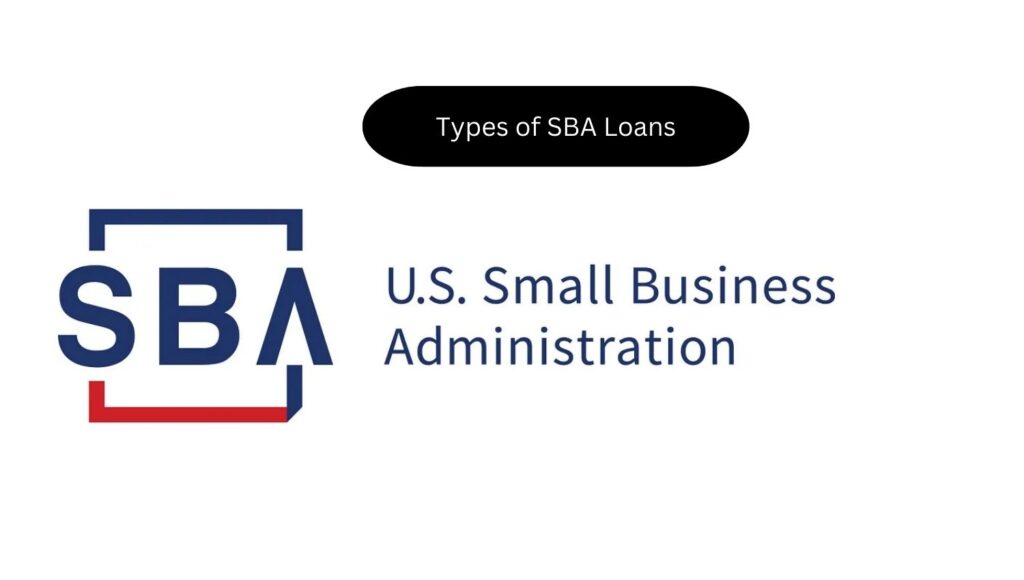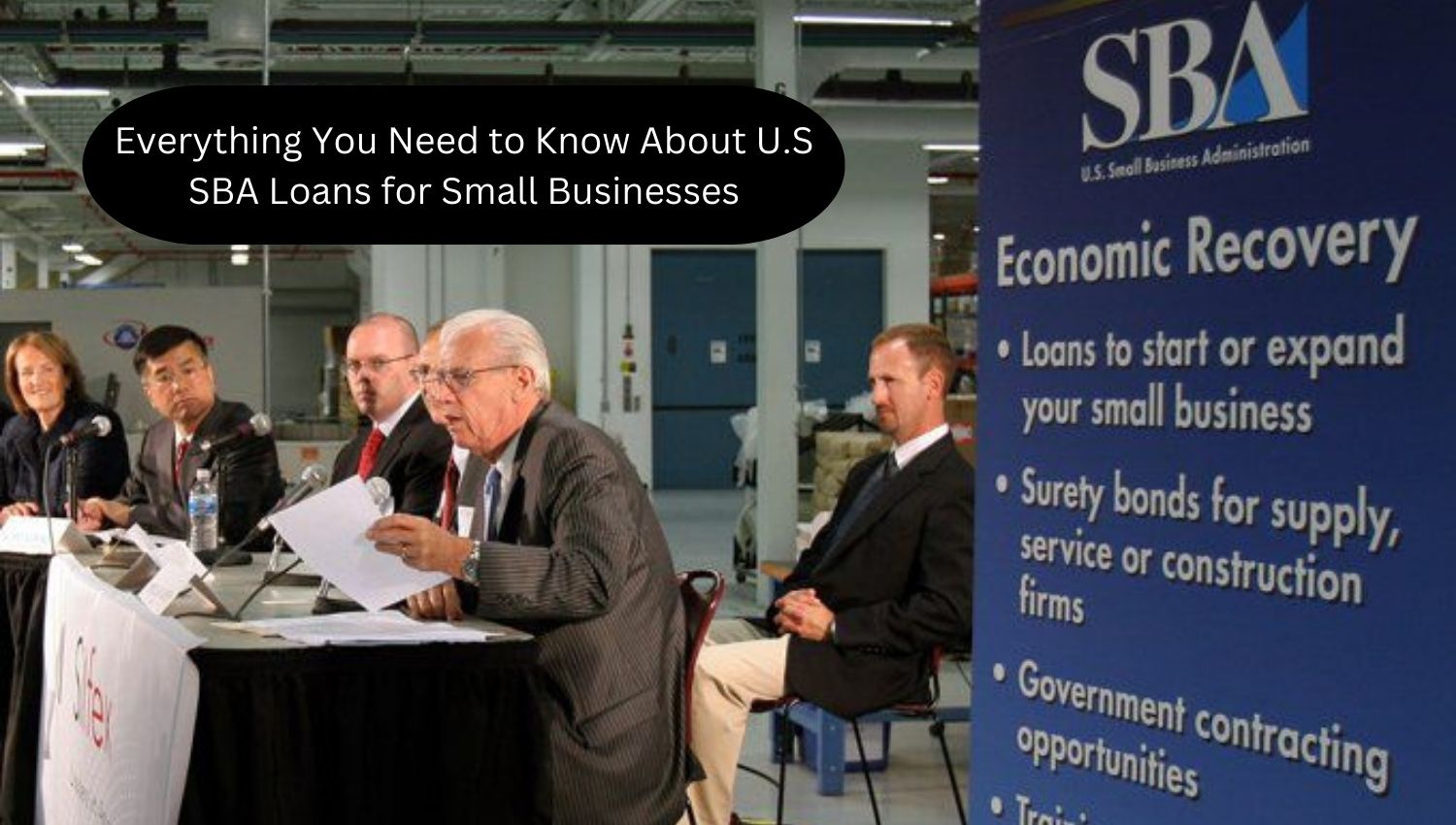U.S SBA Loans for Small Businesses: If you own a small business or dream of starting one, you’ve probably heard about SBA loans. Backed by the U.S. Small Business Administration (SBA), these loans can be a game-changer, offering better terms than traditional loans and making it easier for small businesses to get the funding they need. But what exactly are SBA loans, and how can they help your business?
In this article, we’ll break down what SBA loans are, the types available, who qualifies, and how to apply—without all the complicated jargon.
What’s an SBA Loan, Anyway?
U.S SBA Loans for Small Businesses: the SBA doesn’t lend you the money directly. Instead, they work with banks, credit unions, and online lenders to help small businesses get financing. The SBA guarantees a portion of the loan, which means if you can’t repay it, the lender isn’t completely out of pocket. This makes lenders more willing to work with small businesses that might not have perfect credit or a ton of collateral.
The biggest draw? SBA loans often come with lower interest rates, longer repayment terms, and smaller down payments compared to regular business loans.
Types of SBA Loans(U.S SBA Loans for Small Businesses)

There’s no one-size-fits-all when it comes to SBA loans. They offer different types depending on what you need the money for. Here are the most popular ones:
1. SBA 7(a) Loans(U.S SBA Loans for Small Businesses)
This is the go-to loan for most small businesses. Whether you need working capital, want to buy equipment, refinance debt, or even purchase real estate, the 7(a) loan can help. The max loan amount? A whopping $5 million. Repayment terms can go up to 25 years for real estate loans, making it super manageable.
2. SBA 504 Loans(U.S SBA Loans for Small Businesses)
Got your eye on a building or some high-tech machinery? The 504 loan is specifically for buying fixed assets like real estate or equipment. You’ll usually need to put down 10%, and the rest is split between the SBA and a lender. This is great if you’re ready to grow but don’t want to deplete your cash reserves.
3. SBA Microloans(U.S SBA Loans for Small Businesses)
If you’re just starting out or need a smaller amount of cash, SBA Microloans are perfect. You can borrow up to $50,000 (the average is around $13,000), and they’re often used for working capital, supplies, or equipment. These loans are offered through nonprofit intermediaries, so they’re a little more flexible.
4. SBA Disaster Loans(U.S SBA Loans for Small Businesses)
Had a natural disaster or other emergency mess up your business? The SBA’s disaster loans are there to help you recover. These loans can be used to repair or replace damaged property, inventory, or equipment.
5. SBA Express Loans(U.S SBA Loans for Small Businesses)
In a hurry? SBA Express loans have a faster approval process—sometimes as quick as 36 hours. The trade-off is a smaller max loan amount ($500,000), but if you need cash fast, this is a great option.
Why Go for an SBA Loan?
There are plenty of reasons why SBA loans are a favorite among small business owners. Here’s the rundown:
- Lower Interest Rates: Because these loans are partially backed by the government, you’ll typically pay less in interest. That means more savings for you.
- Longer Terms: You get more time to pay the loan back—up to 25 years for some types. This keeps your monthly payments lower and more manageable.
- Easier to Qualify: If you’ve been turned down for traditional loans, an SBA loan might still be within reach thanks to the SBA’s guarantee.
- Use Them for Almost Anything: Whether you’re buying property, covering payroll, or purchasing inventory, SBA loans can cover it.
- Support for Marginalized Groups: The SBA is committed to helping women, minorities, veterans, and businesses in underserved areas. If that’s you, an SBA loan could be a great fit.
Who Qualifies for an SBA Loan?
Now, you might be wondering if you can actually get an SBA loan. Here’s what lenders and the SBA typically look for:
- Your Business is Small: The SBA defines “small business” based on your industry, number of employees, or revenue. You can check their size standards on their website.
- You’re Legit: Your business needs to be based in the U.S., legally operating, and for-profit. Nonprofits usually don’t qualify.
- You’re Creditworthy: While you don’t need perfect credit, lenders will look at both your personal and business credit scores.
- You’ve Invested in Your Business: Lenders want to see that you have skin in the game. If you’ve put your own money into the business, it shows you’re serious.
- You Need the Money for a Good Reason: Whether it’s expansion, repairs, or working capital, lenders want to know you have a solid plan for using the funds.
How to Apply for an SBA Loan(U.S SBA Loans for Small Businesses)
Applying for an SBA loan isn’t as scary as it sounds. Here’s how to do it:
Step 1: Figure Out What You Need
How much money do you need? And what will you use it for? Answering these questions will help you pick the right loan type.
Step 2: Find a Lender
Not all lenders work with SBA loans, so you’ll need to find one that does. The SBA’s Lender Match tool can connect you with potential options.
Step 3: Gather Your Documents
Get ready to do some paperwork. Most lenders will ask for:
- A detailed business plan
- Financial statements (profit/loss, balance sheet)
- Tax returns (both personal and business)
- Loan application forms
Step 4: Submit Your Application
Once your documents are ready, submit your application through your chosen lender. They might ask for extra info, so stay on top of things.
Step 5: Wait for Approval(U.S SBA Loans for Small Businesses)
Approval times vary. Express loans are fast, but other types, like 7(a) or 504 loans, can take weeks. Be patient—it’s worth the wait!
The Downsides of SBA Loans(U.S SBA Loans for Small Businesses)
SBA loans aren’t perfect, so it’s good to know what you’re getting into:
- Lots of Paperwork: The application process can be time-consuming. Be prepared to gather a lot of documents.
- Strict Requirements: While SBA loans are easier to get than traditional loans, you still need decent credit and a strong business plan.
- Personal Guarantee: Most SBA loans require you to personally guarantee the loan. This means your personal assets could be on the line if your business can’t repay.
Are SBA Loans Right for You?
SBA loans are a fantastic option for small businesses that need affordable financing. They’re especially great if you’re looking for lower interest rates, longer repayment terms, or options for specific needs like buying real estate or recovering from a disaster.
However, they’re not for everyone. If you need money immediately or don’t want to deal with a lot of paperwork, you might want to explore other options. But if you’re ready to invest the time, the benefits of SBA loans can make a huge difference for your business.
